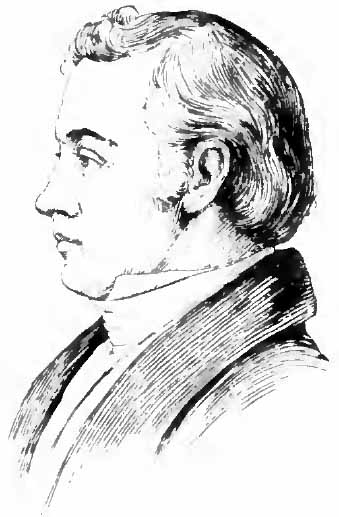
During this heavy-hearted week, as I ponder the heinous act that claimed Charlie Kirk’s life, my mind has repeatedly gone back to an incident that happened almost two hundred years ago involving a man who reminds me a lot of Charlie.
In 1837, a highly respected minister and newspaper editor pleaded with the citizens of Alton, Illinois, to protect his constitutional right to freedom of the press. Elijah Lovejoy had edited The Observer, a weekly abolitionist paper in St. Louis, until pro-slavery renegades destroyed his printing press, threatened his family, and ran him out of town. From there, the thirty-five-year-old Lovejoy ventured to Illinois, where he established that state’s antislavery society and continued printing The Observer.
The minister did not find peace in Alton, however. Night after night, his family huddled fearfully inside their home as angry crowds threatened to burn down the house and kill its occupants.
At the start of November 1837, Lovejoy appeared at a public meeting in the Alton courtroom to defend his abolitionist convictions. He also appealed for personal protection from violence and his right to freedom of the press. He moved many people to tears as he described the hardships he faced night after night as he and a few dozen supporters guarded his family and his printing press.
Lovejoy stood confidently before the chairman of the public meeting. It wasn’t true, his insisted, that he made speeches simply to provoke Alton’s citizens or that he deliberately flew in the face of convention just to be different or to incite civil disorder. No, he said, he stood where he did on slavery because of strongly held convictions:
But, sir, while I value the good opinion of my fellow-citizens as highly as anyone, I may be permitted to say that I am governed by higher considerations than either the favour or fear of man. I am impelled to the course I have taken because I fear God. As I shall answer it to my God in the great day, I dare not abandon my sentiments, or cease in all proper ways to propagate them.
The appealing young minister also asserted that all he wanted was the personal protection and freedom of the press afforded him under the United States Constitution. While his only “crime” was offending some people’s sentiments regarding slavery, Lovejoy insisted that he had broken no laws. He didn’t deserve to be “hunted down continually like a partridge” or threatened with being tarred and feathered. Would he and his long-suffering family and their property be protected from lawless individuals who didn’t approve of his beliefs? He described how his ailing wife had to flee from her sickbed almost nightly to escape mobs surrounding their home. Many in the courtroom sobbed, moved by Lovejoy’s deep concern for her. Even some of his enemies cried.
After regaining his own composure, Lovely said, “It was the allusion to my family that overcame my feelings. No, sir, I assure you, from any fears on my part. I have no personal fears.”
He had made up his mind after consulting with family, friends, and God to stand fast and “to insist on protection in the exercise of my rights.” He was, he said, even prepared to die for his convictions, if need be. “If the civil authorities refuse to protect me,” he concluded, “I must look to God; and if I die, I have determined to make my grave in Alton.”
On the night of November 7, many who participated in that meeting descended upon the warehouse where Lovely and about fifteen men defended his fourth printing press. Pro-slavery gunslingers fired twice into the building; Lovejoy and his defenders fired back, knowing that the law would not be on their side. Then the mob set fire to the warehouse, and as Lovejoy fled, his enemies shot him to death. Afterward, they dragged his mangled body through the streets of Alton.
Public outrage greeted the news of Lovejoy’s martyrdom. There had been other abolitionists who surrendered their lives for the cause, but none had touched the American spirit as that respectable, gentle, and forsaken minister. This was no extremist, but a man to whom freedom-loving Americans could relate. His death led Massachusetts Senator Henry Wilson to reflect:
Nothing had so clearly indicated to antislavery men the nature of the conflict in which they were engaged, the desperate character of the foe with which they were grappling. . .
Shortly after Lovejoy’s murder, his brother Owen traveled to churches throughout Ohio to tell the story of what had happened at Alton. People wept as they heard about the minister who had courageously defended his rights, not for selfish purposes, but to free and empower black men and women. It was from that point that abolitionism gained the respect of many Americans who had previously been on the sidelines about the issue.
This moment in our nation’s history feels a lot like that one. RIP Elijah Lovejoy. RIP Charlie Kirk.


Leave a Reply